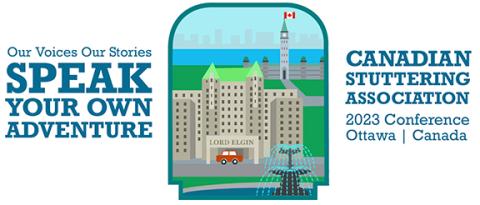
My Name... My Name... My Name is Don McLean
My Name... My Name is Don McLean. My Name... is Don McLean.
The Magic of Music & Self-Expression: A Journey of Empowerment for Kids and Parents

Francois "Francy" Goudreault Wins Music Award

Last month musician Francois "Francy" Goudreault, who performed at the 2022 CSA con
Sports Writer and CSA Member Ryan Cowley is Keynote Speaker at SLP College Event
On the weekend of June 23, I was in Albany, New York, where I attended the College of Saint Rose's 4th annual Stuttering Treatment Program.
Kyle's Story
According to the Oxford dictionary, the word “Stutter” is defined as: “talk with continued involuntary repetition of sounds, especially initial consonants.” Prior to 2007, if asked to define the above term, I probably would have replied with a similar response. It wasn’t something that I would have ever thought about, I didn’t know someone who stuttered, nor did I stutter myself. It wasn’t something that affected my life or my family’s life so therefore, I was ignorant to its meaning.
Another Successful "Let’s Talk" on Trauma-informed Speech Therapy

On Sunday, June 25 the CSA hosted another virtual Let’s Talk event.
Survey from Western Sydney University
It has often been assumed that adults who stutter want to seek treatment from speech pathologists and connect with support groups to help them manage their stutter and speak fluently. However, we are a group of researchers who want to know what people who stutter really want. Would you prefer to control your stutter, or would you prefer to speak freely without concern about your stutter? If you'd like professional help, what type of help would you prefer? This survey from the Australian University, Western Sydney, explores these questions. The survey is divided into three sections.
Berenice Mengo, MBA is the new CSA Marketing and Communications Coordinator

Berenice is currently a Programs Officer for the new Indigenous Outreach & Partnerships Section at the Canada Revenue Agency (CRA) headquarters.
